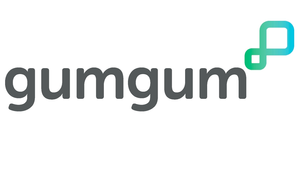
GumGum Delivers Digital Ads as High as 90% More Efficient in Carbon Emissions Intensity Than Industry Benchmark

GumGum, a contextual-first, global digital advertising platform, has announced its industry-leading carbon efficiency in digital advertising, achieving an overall impression intensity of just 0.48 grams of CO2e per impression - significantly outperforming the industry benchmark of 2.45 grams per impression, a score calculated as a 50/50 split between programmatic and direct buy types. Through its continued partnership with Cedara, the Carbon Intelligence Platform and a leader in media decarbonisation, GumGum remains at the forefront of sustainability in adtech.
Here’s how GumGum stacks up in different areas of digital advertising:
- In programmatic advertising (ads placed through automated digital auctions), GumGum generates 0.67 grams of CO2 per impression, compared to the industry benchmark of 4.24 grams - meaning GumGum’s carbon footprint is nearly 85% more efficient than typical programmatic ads.
- In direct advertising (ads placed directly with a publisher, rather than through an automated auction), GumGum is even more efficient, generating just 0.06 grams of CO2 per impression - 90% more efficient than the industry benchmark of 0.66 grams.
- For video ads, GumGum’s intensity scores are also considerably more efficient than industry benchmarks. For programmatic video, GumGum scores at 1.74 grams per impression versus the industry benchmark of 4.83. For direct video, GumGum scores at 1.03 grams per impression versus the industry benchmark of 1.25.
“Sustainability in digital advertising isn’t a future goal - it’s something we’re delivering today,” said Kara Petrocelli, senior director of platform operations at GumGum. "We're proving that brands and publishers don't have to compromise between performance and sustainability. By optimising bidstream efficiencies and data centres, removing certain inventory type classifications like MFAs, and embracing contextual solutions, we're not just reducing emissions - we're setting a new standard for responsible advertising."
GumGum’s carbon footprint is measured according to the Global Media Sustainability Framework (GMSF), the standardised methodology for media emissions measurement, released in June 2024 by the World Federation of Advertisers (WFA) and Ad Net Zero. Unlike previous methodologies, the GMSF provides a holistic, granular, and consistent approach, ensuring more accurate and comprehensive carbon reporting.
Cedara, a founding supporter of Ad Net Zero US and a member of IAB Europe led the measurement process, calculating GumGum’s carbon intensity values by leveraging the GMSF. The same methodology was applied to calculate industry benchmarks, offering an apples-to-apples comparison.*
“The advertising industry is increasingly shifting toward more sustainable media practices, and GumGum is setting a powerful example of what’s possible,” said Eric Shih, chief operating officer at Cedara. “GumGum has achieved one of the lowest carbon intensities we’ve seen in digital advertising. Their ability to reduce emissions by 90% compared to industry benchmarks demonstrates how data-driven decision-making can drive both sustainability and business success.”
As sustainability continues to be a top priority for brands and advertisers, GumGum remains committed to advancing contextual solutions that reduce environmental impact without sacrificing performance. By aligning with global industry standards and optimising ad delivery, GumGum is paving the way toward a lower and more efficient carbon future for the digital advertising industry.
GumGum continues to further investigate ways to drive more sustainable advertising solutions, including developing science-based emissions reduction targets as part of the Science Based Targets initiative (SBTi).














